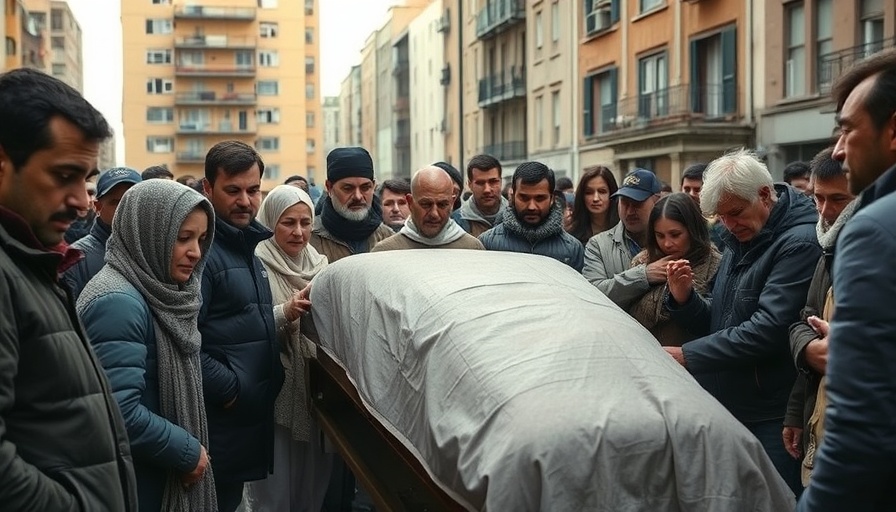
Tragic Loss of Life in Gaza: A Heartbreaking Incident
On a day when many sought essential resources, ten lives were tragically cut short in central Gaza. Among these were six children, killed during an Israeli air strike as they waited to fill their water containers. Eyewitness accounts describe a missile striking a crowd beside a water tanker in the Nuseirat refugee camp, an area already beleaguered by the ongoing conflict.
Understanding the Implications of Military Errors
The Israeli military has attributed the fatal strike to a "technical error" while pursuing a target identified as a member of Islamic Jihad. This admission underlines the complex and often perilous reality of military engagements in densely populated civilian areas. The military insists that it strives to minimize civilian casualties, yet incidents like this raise significant questions about the effectiveness and ethics of such operations.
The Human Cost of Conflict: A Broader Perspective
The relentless airstrikes across Gaza have led to increasing fatalities and injuries. Reports from the International Committee of the Red Cross (ICRC) indicate a marked rise in medical emergencies, further compounding the humanitarian crisis in the region. With hospitals overwhelmed, resources are strained to their limits, revealing the dire consequences of ongoing hostilities.
What Can We Learn from This Tragedy?
This incident serves as a somber reminder of the human cost of conflict. For those of us outside the immediate vicinity, it emphasizes the importance of understanding the realities faced by civilians in war-affected areas. Engaging with these narratives fosters empathy and awareness, encouraging policy discussions that prioritize civilian safety.
Time for Action: Advocating for Change
In light of these tragedies, it is crucial for international communities and organizations to advocate for policies that protect civilians in conflict zones. As civilians bear the brunt of warfare, the push for enhanced humanitarian efforts and diplomatic solutions becomes more urgent.
Reflecting on the loss of innocent lives fuels a call to action; we can advocate for humanitarian interventions that seek to alleviate suffering and protect non-combatants caught in violent crossfire.
 Add Row
Add Row  Add Element
Add Element 



Write A Comment